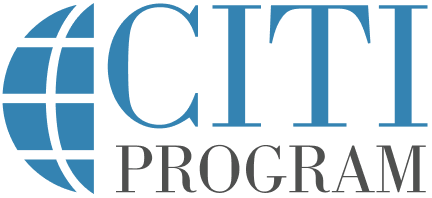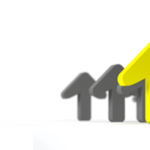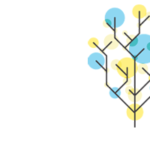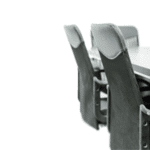Season 3 – Episode 5 – Professional Development: A Conversation about Career Transitions
In this episode we discuss reframing your experiences beyond your title, identifying roles that align with your values and strengths, developing a plan to further your skill set, and evolving as a professional.
Podcast Chapters
Click to expand/collapse
To easily navigate through our podcast, simply click on the ☰ icon on the player. This will take you straight to the chapter timestamps, allowing you to jump to specific segments and enjoy the parts you’re most interested in.
- Introduction to the Episode (00:00:06) Ed Butch introduces the podcast and the special episode focusing on compliance and development in healthcare.
- Guest Introduction (00:00:39) Andra M. Popa introduces Julie Hamilton, highlighting her background and coaching services.
- Podcast Purpose and Disclaimer (00:01:13) Discussion of the podcast’s educational intent and a disclaimer regarding legal advice.
- Julie’s Career Journey (00:01:48) Julie shares her personal career transition from compliance to coaching, emphasizing her experiences.
- Current Transition and Program at Oxford (00:02:10) Julie discusses her current attendance at a program focused on mid to late career transitions.
- Career Path in Healthcare (00:03:54) Julie reflects on her 25 years in healthcare, detailing her roles and experiences in compliance.
- Transitioning 11 Times (00:05:16) Julie reveals her numerous career transitions and their significance in her professional journey.
- Realization About Compliance (00:06:47) Julie identifies her enjoyment in being an advisor and educator within the compliance field.
- Coaching Career Launch (00:08:00) Julie discusses her decision to pursue coaching after being laid off and her focus on career transitions.
- IPAC Certification Explanation (00:08:10) Julie explains the IPAC coaching program and its focus on energy leadership and personal growth.
- Starting Client Conversations (00:09:03) Julie describes her approach to initiating discussions with clients about their career satisfaction.
- Importance of Self-Awareness (00:10:23) Julie emphasizes the need for self-awareness in understanding career changes and personal growth.
- Value of Objective Feedback (00:11:30) Julie highlights the benefits of having an objective coach to help clients navigate career transitions.
- Learning and Certifications for Transition (00:13:09) Julie discusses the value of additional learning and certifications for facilitating career pivots.
- Emotional Awareness in Coaching (00:14:47) Julie shares her discomfort with discussing emotions and its impact on her coaching practice.
- Transitioning from Negative to Positive (00:17:40) Julie explains how to approach career transitions positively, using her own experiences as an example.
- Awareness and Feedback in Career Growth (00:19:03) Julie discusses the importance of seeking feedback and self-reflection in personal development.
- Supporting Clients Feeling Stuck (00:20:31) Julie outlines her approach to helping clients who feel trapped in their current jobs.
- Values Assessment in Coaching (00:21:28) Julie details the process of conducting a values assessment to guide client transitions.
- Focusing on What Works (00:23:38) Julie emphasizes the importance of identifying and focusing on what clients want in their careers.
- Active Steps for Change (00:24:00) Julie encourages listeners to consider their life holistically and take active steps toward improvement.
- Influence of Associations (00:25:30) Julie discusses the impact of social circles on personal development and career success.
- Utilizing Strength Finder for Personal Growth (00:26:58) Introduces the Strength Finder tool to identify strengths and suggests exercises for personal development.
- Focusing on Strategic Skills (00:28:06) Explores how to shift focus from operational strengths to strategic skills in career development.
- Articulating Your Experience Beyond Titles (00:29:12) Emphasizes the importance of recognizing and communicating strategic work in resumes and interviews.
- Reassessing Strengths Over Time (00:30:36) Encourages using Strength Finder periodically to reflect on evolving personal and professional strengths.
- Using Strength Finder for Career Transitions (00:31:35) Discusses how Strength Finder can help articulate one’s story during career shifts.
- Moving Beyond Titles (00:32:45) Highlights how individuals can become constrained by their job titles and need to explore their full potential.
- Limiting Negative Conversations (00:35:15) Advises on managing negativity in the workplace by focusing on solutions rather than constant venting.
- Transitioning from Regret to Acceptance (00:37:20) Discusses the importance of acceptance in overcoming past regrets and moving forward in life.
- Continuous Career Transitions (00:39:08) Explores the idea that career transitions are ongoing processes rather than distinct beginnings and endings.
- Looking Forward in Life Transitions (00:40:20) Encourages embracing both positive and negative experiences to improve future transitions in life and career.
Episode Transcript
Click to expand/collapse
Ed Butch: Welcome to On Campus with CITI Program, the podcast where we explore the complexities of the campus experience with higher education experts and researchers. I’m your host, Ed Butch, and I’m thrilled to have you with us today. Welcome everyone to a special episode of On Campus. This is the first of three special episodes where my colleagues, Anne Hawkinsbadge and Andra Popa will talk with guests about compliance and development within their areas of healthcare and environmental health and safety. Take it away, Anne and Andra.
Andra Popa: Our guest today is Julie Hamilton. Julie is the owner and CEO of Core Rising, which she launched in 2021 to help individuals, leaders, and organizations do their best work by providing individualized and team coaching services. Drawing on 25 years experience working with executive and management teams in the healthcare industry, Julie works with clients to identify their core values and align their lives in ways that bring joy and inner peace. Julie is certified by IPAC as the certified professional coach and as a master practitioner in energy Leadership assessments. Today we’re going to discuss the professional development and compliance profession. In addition, I want to quickly note that this podcast is for educational purposes only. It is not designed to provide legal advice or legal guidance. You should consult with your organization’s attorneys if you have questions or concerns about the relevant laws and regulations that may be discussed in this podcast, if any. In addition, the views expressed in this podcast are solely those of our guests. And on that note, welcome to the podcast, Julie.
Julie Hamilton: Thank you for having me. I’m so thrilled to be here.
Andra Popa: Thank you.
Anne Hawkinsbadge: Julie. Let’s start the podcast off with this question. If you would be kind enough to share your personal journey of transition throughout your career, from compliance to coaching, your current sabbatical, as well as share your client stories that help explain and normalize what we all may experience during times of transition in our lives.
Julie Hamilton: Well, that’s such a big beautiful question. I love that. Love it. Yes, thank you. I thought maybe I would start with where I am right now and then I’ll go back a little bit. But where am I right now? I am in a transition of and attending a program at Oxford University in England, and the program, it’s called Next Horizons, which is about, it’s primarily focused on people that are mid to late career who are technically retiring or wanting to make a big transition and figuring out what’s next. And the reason I’m here is because I’ve been coaching people, which I’ll tell you about here in a second, but I’ve been coaching for the past four and a half years, helping people make career transitions. But yet I also had my own personal career transition in 2020 that I had been working in my field of healthcare for 25 years. And so this program is so interesting just to come and take a moment to pause and think about all the things that I think we’re going to talk about on today’s podcast, so that’s where I’m at right now.
Just to go backwards a little bit, I have worked in the healthcare industry for almost 25 years, primarily in quality improvement and corporate compliance. That was the path that I went on. And throughout the compliance, it really pivoted into being in the compliance field, becoming a chief compliance officer, primarily in academic healthcare systems have been where I spent most of my time. I did also spend a little bit of time in a health plan, but throughout my 25 years, I also stepped away and had my own business for a couple of years. I was a consultant in the compliance space for a couple of years. I also left and went into a big four consulting firm as a managing director for a number of years. And so that all of those, that was really for me the path of… I was really following the, I don’t want to say, climbing the ladder a little bit of gaining experience. I had experience in the healthcare field.
I really enjoyed compliance, and I’ll tell you more about that in a minute, but I really enjoyed aspects of compliance, so I wanted to try that out working in different ways with compliance. Like I said, having my own business, being a consultant, working in different organizations. And as I was thinking about making a transition into a new space, I looked back at my career in those 25 years and I had transitioned 11 times in my career. And I thought, whoa, that’s actually… It didn’t really feel like that at the time, because of the different moves I made and the different, whether it was promotion or a higher level position or stepping out to consult on my own. And so looking at that through line, that was the thread for me when 2020 happened, I was at that point where I was like, I’m ready to do something different. And again, we’re going to dig deeper into this. I’m giving you the surface high level, but I looked at that and I was like, what is it about the compliance field that I really enjoyed over all these years? What is it about it?
And I thought, you know what? It was really that compliance officers, or at least in what I was doing, were advisors to the business, were it coaches to the business, be it a hospital or a health plan or a doctor’s office were advisors and were educators. And that was really what I noticed in my career in that 25 years, I kept thinking, what is it that I want to do next? And I did really take the time to dig into that. And I thought, I like education, I like educating people, and I also like being the coach, so to speak, so that’s really what happened. In 2020 I was working at Deloitte as a consultant and was laid off and was able to then say, okay, now what? What do I want to do next? Which was mentioned, Andra mentioned in my bio that I attended iPEC, which is a coaching certification program.
And so I went to that and established a coaching business, and I wanted to focus on career transition because like I said, I had noticed throughout my career how many pivots I made and started to see the opportunity to really help people make those transitions into the next steps that they wanted to make and help them get where they wanted to go. I think I’ll stop there because I know we can dig into all those areas in any way you want, but that’s I would say a bit of my journey.
Andra Popa: Could you explain the iPEC certification?
Julie Hamilton: Definitely, yes. The iPEC coaching training program is around energy leadership. It’s about knowing your typical energetic response and reaction to things and to learn the different levels, helps you move through them, move up to higher levels that are more effective. And as a leader in relationships, in your work, in your life.
Andra Popa: I reached out to you because I couldn’t quite figure out why compliance auditing wasn’t working anymore with a young family. You started by asking me questions about what I liked about auditing, if I liked it at all, and what I did like about it. I love auditing. Is that a typical way that you would start with a client or an organization?
Julie Hamilton: Yes, we reach a point of I’m just not maybe as satisfied as I once was, or life changes have happened, like you said, and it’s an opportunity I think, to look at it as what’s going on in my life. And our lives are made up of so much more than our career. It’s our relationships and our health and our finances and spirituality, and there’s many aspects of life. And so how I typically start working with a client is yes, I have a comprehensive questionnaire that I have them work through because, and like you said, I think when you and I spoke, I probably just zoned in on tell me what’s working for you, what’s not working for you? What areas of your life are like… Where do we need to focus? But that’s really the thing for people to do, it takes some assessment. It’s the awareness aspect, what’s really going on holistically in your world because things shift as they should. And if in your career in particular something you used to love doing, you’re not loving it as much anymore. That’s okay. We’re all growing, we’re all evolving.
And so yes, I would say that I go through with clients, what is it about the work that you were doing that you love and now today, what are the things about it that’s just really not fitting for you? And to your point, it’s typically maybe other areas of our life have shifted and things just don’t quite fit the same, but it’s important to know both sides of that equation, especially when you loved… I loved working in compliance. I absolutely loved being the advisor to the business and educating, going to team meetings and educating people. I loved it. It was amazing. And then at some point it started to shift for me and I needed something a little different and I had to understand what were… The word I use is, what’s the thread? What’s the thread of things that you love? Because we want to know what that is because we want to hang onto that, but we also need to understand what has changed. And sometimes it’s other parts of our life have changed and that therefore that doesn’t fit anymore.
Andra Popa: It was so useful to have someone objective look at it. I trained for so long and you identified it, you said as a consultant you’re the emergency person and your hours are very unpredictable, but with a family life or with children, it’s very different. You need a predictable schedule. You helped me identify that really what I love, as you said, is education, so I pivoted into education.
Julie Hamilton: It’s true. I think that’s a great point that I think when… I’ve worked with coaches for the past six to eight… I’m trying to think what year I started working with a coach, 2018, I feel the same way. It’s like for yourself, you can ask yourself a series of questions and think about what’s going on here, but sometimes it really helps to have someone else hear you talk it through like we did, and then I can pick up on some things and ask you a little more specific questions that maybe you wouldn’t ask yourself. And I think that’s what happens in a coaching relationship is that people come forward, they share their story, they share their viewpoints, and then a coach gets to ask you a little more specific questions. And when you articulate it back to me or whomever, that’s the real recipe for success, is we get to see it… You get to express it in a new way. You get to answer a question that maybe you wouldn’t have asked yourself, and that’s when people have real awareness and awakening.
Andra Popa: Would you say that additional learning and certifications are good ways to pivot once you do identify your values and the goals that you want?
Julie Hamilton: Yeah. Thank you. I would love to share this with you because I had the most unexpected thing happen when I went through the coaching training because I thought… And I had plenty of people tell me, oh, Julie, you’re an amazing mentor and coach and advisor and all these things and your career shows that. And so I’m like, okay, great. I’m going to take this coaching certification just to get the credentials and the information to support me as I move forward. And one of the most, I think, profound things that happened while I was in the coaching training program was it showed me where I was uncomfortable with asking certain things. I’ll tell you what that is. One of the things that when we think about digging deep into who we are and what we like and what we don’t like and all that, one of the questions that we as coaches ask is, how do you feel about that?
How does it feel? Meaning the emotion underneath it, how do you really feel about it? How do you feel about making this change? And I found myself being very uncomfortable asking people how do they feel? And I don’t know, Andra, how you feel about this, but in compliance, I just didn’t ever really go there. I didn’t feel like I had to go there. I was very business minded and not as personal. And that was, it felt like a very personal question, and it is. And that’s what a coach helps you uncover. And so I found in myself discomfort with asking people how did they really feel? And that’s just an example of what really unfolded for me. That was a place that I needed to work on for myself to expand, and then of course to help my clients expand too.
Anne Hawkinsbadge: Julie, you brought up a really key point there about asking ourselves questions. To summarize what you’re saying too, is that it’s okay, we are going to transition. We may not stick with our original degree or certification, but as things happen in our life, we’re going to expand. And I think you made a very good point when you said it was difficult to ask yourself the emotions. I wonder if it’s because you were compliance oriented, more regulatory oriented, that we leave the emotions out of that and we stick to just the facts.
Julie Hamilton: Yeah, I think so. For me at least, I believe that was probably what was attractive about being in the field of compliance was that I could be very business oriented and not as concerned about how things make me feel. And I think what it highlighted for me as I went through the coaching certification was as a leader, I could see where, as I looked back on my career and the challenges I had as a leader, it wasn’t the compliance work. It wasn’t that work. It was the actual leading a team and having people on my team maybe that I couldn’t quite connect with in the way that I wanted to. And it was probably because I wasn’t comfortable talking about, how does this make you feel? Or how can we really know each other on a different level and not be… I was very business focused and business oriented, and like I said, I think the field of compliance allowed for that. But as a leader, that was an area I look back on now and think I really could have benefited from handling some things differently.
Anne Hawkinsbadge: Well, let’s take that basis right there that you talked about and trying to explain to clients how they can transition from a positive point of view for new opportunities. Like you described how you transitioned from something that could have appeared to be negative, but you turned it into a positive, so what approach did you use?
Julie Hamilton: I would say, when I was wanting to make a change in my career, I definitely did a lot of awareness work. I did work with a couple of coaches and I did my own reading and things to figure out what is appealing to me, what am I interested in? And I think what worked for me was I did seek feedback too from colleagues and including people that worked with me on my team and other consultants because I was in consulting at the time. And did bring all that together of feedback I had received and what were the things I really liked to do? And on some level, there’s a lot of… When you ask for feedback, you get more positive than you get constructive criticism. But there were for sure some constructive criticisms that I heard, but I didn’t quite know what to do with at the time.
And that’s why I can share that story with you of when I went through coaching certification, that became clear to me that was an area that I could grow and actually be more personal, be more in touch, ask how people are really feeling, and how could I support them as their leader in a different way. It was a combination of those things, but also, of course, you have to be open to in taking in that information then thinking about, okay, I definitely had some feedback when I was a consultant that I wasn’t thrilled with and I thought, well, how can I take this and learn from it? Because I know I also feel I have some… I can feel internally, I have my own discomfort, so it’s like a little bit of acknowledgement and acceptance of this is what… I know there’s some truth here and I don’t know exactly what it is, but I will continue to move forward and ask for feedback.
And then like I said, it came out through the coaching certification that I realized asking those kinds of questions was very uncomfortable for me and therefore I had to start practicing it more. That’s what happened with clients. Of course, I practiced it and practiced it and we had beautiful unfolding conversations, and so it eased some of that discomfort.
Anne Hawkinsbadge: I’d like to ask one more question along those lines. How do you encourage people who feel that they’re a victim have to stay in this job because they want to support their family, but their inside gut is just ripping them apart? How do you begin to take them from that high level of stress or bad energy to that area where they can find their transition?
Julie Hamilton: Wow, Anne, what a beautiful question. I would say it’s a combination of things, but one thing I always had clients do that I’ve been working with in the last couple of years was start with a values’ assessment where we, just in the very first or second call that we have where I have them identify their top five or 10 values. And the purpose of that is really to set a foundation for what’s important to them. And a lot of times that would take a whole phone call, an hour, hour and a half phone call to just talk about what are their values? Are they living those values? And it’s so different from you can fill out a values’ assessment right now and say, oh, my top five values are this, this, this, and this and this. But the real richness comes from talking to someone about it and describing, and I would say, tell me more like what that means to you. Tell me if integrity is your top five, tell me what integrity means to you. Give me examples. How are you living that today?
And are there areas of your life where you’re not living that? And what are the barriers to that? It was really a foundational… We really start the first couple of coaching calls to set that foundation of what is really important to you, what’s getting in the way of it? And I feel like it was very eye-opening for people where they’re like, “You know how it is.” We all do this. We’re all like, oh, these are my top priorities. And then I would ask them, “Are you living that day to day? What’s the score? What score would you give that?” And they’re like, “Oh, no. No, I’m not.” And so then we would talk more in depth and it’s very eye-opening. The awareness really is there. Awareness, and I think some acceptance happens through that too because people are realizing like, “Oh, I said that’s one of my top five values, but I’m not doing it.”
And so that’s really, I think, one of the things we… That was really profound with clients that really helps them open the door for… And I think it helps set the trust between us too, because talking about your values with your coach is like, this is what’s important to me and it’s what I want to help them lean into. Okay, so these are the things that you said are important to you. And then to your point about what’s not going well at your work, we don’t spend a ton of time on that. I want to understand it, but it’s more like, let’s come back to what are the things you do love? What are your values? Because I want to focus on what you want and we need to understand what’s not working, but then we’re going to be like, we’re going to park that this is what’s not working, but let’s focus on what you do want and let’s pour our energy into what you’re looking for, what builds your energy, what makes you feel more successful and happier? And that’s the momentum I’m looking for.
Andra Popa: This all sounds very active. Is this something people can even start now?
Julie Hamilton: Yeah, for sure. I think that’s a great point is that if… A takeaway would be thinking about your life… I think a lot of us focus on career as being like this. If you think about a circle and career for some of us tends to be like 90% of it. It’s like actually when you think about the wheel or the circle of life, there’s so many parts of your life and a career is only a segment of it. And so yes, I would say that it’s important to look at the different areas of your life and pay attention to what’s working for you and what can you learn from that.
Again, there’s information there of the parts of your life that are working really well, what’s going on there? What’s the thread? How can you apply those same, whether it’s thoughts, behaviors, steps that you’re taking? If your career is going great and maybe you’re not as happy with a relationship or your health or your finances, look at the part of your life that’s going well and what are the things that you’re thinking about, how your behaviors are impacting that? And you can apply that. What are the patterns that you see? And you can apply it in other areas of your life too.
Andra Popa: I recall that you had a post about being careful who you associate with as well, and is that part of it? As you stated, a relationship could be any form.
Julie Hamilton: Yeah. Thank you. I love that. I love that question because I think the post was probably around, there’s a quote that goes out there in the personal development space around you are the average of the five people you surround yourself with. And I think that that is incredibly true because just think about an area. I can think of some clients that would come to me and say, “Oh, my gosh. I’m unhappy with where I’m at.” And the people that they talk to on a daily basis at their job are all unhappy, all in the same kind of space.
Well, guess what? You’re just creating that… It’s a back to the energy conversation. You’re just embodying that energy and you’re surrounding yourself with people that have the same energy. To your point, if you’re in a place where you’re like, okay, I’m not really happy or thrilled with where I’m at in my career, probably the best thing you could do for yourself is to really focus on spending time and talking to people that are happy with where they’re at because it’s very… Our thoughts drive everything, so if you talk to people who say, oh, I have this mentor or this coach, or I’m doing this professional development, or this is what I’m doing with my team and I’m so energized by it.
Andra Popa: What kinds of questions can people ask themselves if things are going well?
Julie Hamilton: Yeah, I think so. One tool that I used with clients a lot, and I love it, is StrengthFinder, which is a Gallup. You can get the book or it’s on Amazon, it’s $20, so it’s not that much. But what I like about it is that it’s just a very quick assessment, identifies your top five strengths, but the book itself gives you the, let’s say, I don’t remember how many are in there, 30 or so skills that even if you see your top five… And the information it gives you exercises, you can practice to build that strength, which I really like. I had this one client who was a chief operating officer of a hospital, and she said to me, “Well, I know those are my strengths. I don’t want to keep doing those though. I want to do strategy instead of operations.” And in the book or in the assessment, it has ideas for how to practice focusing on thinking about strategy versus operations.
Even if your top five strengths are the things you know about yourself, which is great. And I think it’s helpful because focusing on what you’re really good at, number one feels good. Number two, it’s just like the way to stay in that positive space, but you can also then pick up another strength or a skill out of the book and see examples for how to build that strength. And that’s what we did with her was she said, “I want to focus on strategy even though these are my strengths, I already know that about myself.” And I said, “Great, then let’s talk about that. What can you do to focus on starting to build a strength around strategy? Knowing this about yourself, knowing that your strengths are operations, whatever the things were.” And I thought it was very… I really love that tool. I think it’s very helpful, especially working with a coach. You can take it in the direction you want to go.
Andra Popa: Once I realize the direction, I see the opportunities immediately.
Julie Hamilton: Exactly, thank you for saying that. And actually I’ll just make the one last point. Even if you don’t take an assessment in this example of if you’re an operations person and you’re like, but I really want to do more strategy work, what we talked about was she and I talked about was in the work that you do today, there is strategy and strategic planning up as part of it, so how do we highlight that in your experience, on your resume, how you talk about yourself? Because I think we all get… She was a chief operating officer, that was her title, so the way she talked about herself was, “I’m an operations person.” And I said, “No, you also do strategy. You’re a chief operating officer. You have a ton of strategic planning that you do. I think we get stuck a little bit in the title and not talking about, so I think that’s a good example of she… We started talking about examples of where do you deploy strategic vision in the work that you already do, even though you’re not a strategy officer, so to speak.
Anne Hawkinsbadge: I like the StrengthFinder approach. I think that’s a very logical way of approaching it. I think the question that I have is should people use the Strengthfinder periodically throughout their life and not just run with their degree or their title from their first job and that’s where they’re always going to fit.
Julie Hamilton: That’s a great point. And I would say absolutely, if a tool like this is really helpful for you, I personally really enjoy it, I think it really speaks to me and to what you’re saying. It has changed for me over time. It has definitely changed… I probably did it like five years ago and then I did it five years later or that kind of thing. And some things stay consistent and some things change because of where you’ve evolved to as an individual and as a leader. I think that’s a good tool if you want something like that. The other thing I love about StrengthFinder is that when I’ve worked with people as they’re looking for new opportunities or moving into new opportunities, I’ve used StrengthFinder with them to articulate their story, their resume, yes, their strengths, but also more about, we use specific examples.
It helps you with the language of how do you want to express yourself, who you are to other people, whether it’s via interviews or networking? I had a client who had already found a new opportunity, but she was shifting completely from different roles and totally different environment. And she’s like, “I don’t know who I’m going to be in this new environment. I don’t even know how to talk about myself. I was in this healthcare setting and now I’m going to be in pharmaceuticals as an attorney. I don’t even know what to say.” And so we used StrengthFinder and other examples of how have you shown up as a leader and who are you? And it helps give you some language to use.
Anne Hawkinsbadge: I find it interesting, that example you just said shows how people hook themselves to a title or to a position and really never dive deep into who they are and how things change for them.
Julie Hamilton: Yeah, definitely. It’s true. I think the titles we all want and appreciate… I for sure appreciated my chief compliance officer title and role and responsibility that came with it. I will tell you my own personal experience with that was I felt like I became this compliance person that I shaped the rest of my life around that like I had to be… I was pretty strict with myself and I wasn’t willing to take risks in other areas of my life. And so I think the titles are interesting and something to be aware of for sure. Like you’re saying, I think the StrengthFinder helps us see, for me as an example, I’m an amazing coach and mentor and enjoy having fun, and sometimes that doesn’t maybe marry up with the title that I had. And how do you appreciate that and embrace all of it?
Anne Hawkinsbadge: And basically what you described there, is this an area that could add stress to the individual currently doing a job, getting yourself someplace else?
Julie Hamilton: Yeah, for sure. I think so. I think it can. I think that’s my example with my client that was a chief operating officer. As much as we, probably most of us think, oh, isn’t that amazing? She’s the chief operating officer of a hospital, and that’s an amazing role and it is. But it was she had advanced or moved through to a point of wanting to focus more on strategic vision and the operational work is more of a day-to-day maintaining the business. And she was pigeonholing herself in this operational role and not even seeing where she already does strategic work, so the title I do feel was constraining her. Yes.
Anne Hawkinsbadge: Going back to the concept you made earlier about surrounding ourselves with the right people and the right process, maybe people is the right word. What else can you do to break that cycle if you cannot get away from those people that you’re surrounded by that you want to change your environment?
Julie Hamilton: For sure I would say, if you’re around people that are unhappy with their environment, I would recommend that people really limit the conversations. Let me give you an example. I had a client who was a leader, a director, and she had a couple employees that were really not happy and she wasn’t happy and they weren’t happy. And she would say, “I have this, my employee comes in to meet with me once a week or whatever, and the employee would just dump out all of this negativity, this isn’t working, this isn’t working, this isn’t working. I’m unhappy with this person. This person didn’t respond.”
I worked with her to get her to see, the more that you engage in that conversation, the more you keep it alive. And so actually the whole concept of venting is pretty negative and it keeps us stuck, so I think there’s a place for, tell me specifically what isn’t working and that’s it. And then we’re going to park it and we’re going to say, okay, what are we going to do to move forward? I am not saying ignore it completely, but I’m saying don’t allow the constant venting and negativity because it keeps it alive in our situation. And we have to say, “Tell me what’s not working. Tell me what problem you have, and then we’re going to talk about solutioning.”
Anne Hawkinsbadge: I like that advice because basically what you’ve done is you turn that person from a victim into a problem solver and showing them that they have that ability, even if it’s just moving a small step in that direction to solve the problem.
Julie Hamilton: Yeah, I agree.
Anne Hawkinsbadge: I was going to ask about how do we transition from regret to forward-looking and forward movement? What’s something we can do daily to get that turned around?
Julie Hamilton: That’s great. I’ve spent a lot of time personally in the past year or two on acceptance. And acceptance is one of the stages that we go through in life and in coaching in particular. But what that means is accepting that whatever choices I made in the past or whatever happened, whatever my life circumstances were, that was meant for me. That was part of my journey and accepting it. And to your point of not holding onto regret about it or wishing that it was different, that is energy that keeps you stuck and finding a way to… It’s been quite a journey for me.
I’ve been really reading a lot about acceptance and how do I fully accept things even that I’m not that thrilled with? And it’s really acknowledging and allowing that’s what happened and that’s what was meant for me. And like I said, taking the lessons, whatever that might’ve been, and moving forward. Acceptance is a huge part of releasing any weight that you carry with regard to old situations or things you did or didn’t do, or it’s really you’re carrying… Think of it as like carrying extra weight, carrying extra baggage and accepting that whatever happened or whatever didn’t happen, that’s what was supposed to be, so you can release that weight and free yourself to move forward in a more free way.
Andra Popa: How may people contact you if they want to learn more about career transitions?
Julie Hamilton: I’m happy to share my direct email which is julie@corerisingcoaching.com. And also, of course, I’m on LinkedIn and I think you guys have the link.
Andra Popa: And are there any other topics you want to discuss that we haven’t already?
Julie Hamilton: I think since I’m in this transition program myself in Oxford, I think the thing that I’m really taking away from it is we’re always in transition. I used to think when you leave a job that’s an ending and you start a new job, and that’s a beginning and it’s like, it’s just a continuous process. And so not worrying so much about if you’re like, I want to make a change and I want to end this thing that I’m doing and start something new.
It’s a continuum, so even if you’re ready to make a change and end where you’re at or you’re ready for a new job, you can start working and focusing on, like we talked about, the energy of what is it that you do love? What is it that you are excited about doing? And you can do it right now, even if you’re still in a job that you want to change and start bringing that to your day-to-day, focusing on what you want it to look like, what you want it to feel like. It’s transformative even before you officially end a job or start a new job.
Anne Hawkinsbadge: Everyone throughout their career, and I know I’m using the word career, but as you indicated, it’s not just careers, it’s life, and we need to understand that transitions or continuums is part of that, and that we need to look forward taking with us the good and the bad and applying it to the future to make it better. Thank you.
Julie Hamilton: Well, thank you. We both had beautiful questions, so thank you.
Andra Popa: Thank you, Julie. This will help so many people. You helped me a great deal. Thank you.
Julie Hamilton: Oh, you’re welcome.
Ed Butch: I invite all of our listeners to visit citiprogram.org to learn more about our courses and webinars on research, ethics, compliance, and higher education. I look forward to bringing you more expert guests to discuss what’s happening on campus. Special thanks to our line producer, Evelyn Fornell, production and distribution support provided by Raymond Longaray and Megan Stuart.
How to Listen and Subscribe to the Podcast
You can find On Campus with CITI Program available from several of the most popular podcast services. Subscribe on your favorite platform to receive updates when episodes are newly released. You can also subscribe to this podcast, by pasting “https://feeds.buzzsprout.com/1896915.rss” into your your podcast apps.
Recent Episodes
-
- Season 3 Episode 4: From Dorms to Communities: Fostering Belonging Where Students Live
- Season 3 Episode 3: Learning Beyond the Classroom: Community Engagement in Action
- Season 3 Episode 2: Human-Centered Learning: The Power of Design Thinking in Higher Ed
- Season 3 Episode 1: The Engaged University: A Conversation with Elliot Felix
Meet the Guest
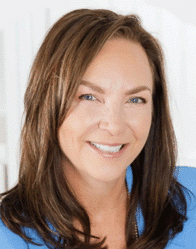
Julie Hamilton, MBA, CPC – Core Rising
Julie is the Owner of Core Rising which she launched in 2021 to help individuals, leaders, and organizations do their best work by providing individualized and team coaching services.
Meet the Host
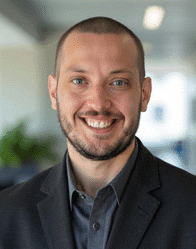
Ed Butch, Host, On Campus Podcast – CITI Program
Ed Butch is the host of the CITI Program’s higher education podcast and the Assistant Director of Content and Education at CITI Program. He focuses on developing content related to higher education policy, compliance, research, and student affairs.
Meet the Guest Co-Hosts
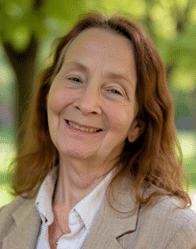
Anne Hawkinsbadge, DHSc, MSPH, MA, CSP, CHSP, CHEP, C(ASCP), Assistant Director, Environmental Health & Safety – CITI Program
Anne Hawkinsbadge, DHSc is the Assistant Director of EHS. She focuses on developing content related to environmental, health, and safety practices and compliance. She received her doctorate in Health Science from Nova Southeastern University, MSPH in industrial hygiene and graduate certificate in disaster management from Tulane University, MA in public health from Central Michigan University, BS in mechanical engineering technology and BS in biochemistry from Saginaw Valley State University. She is a certified safety professional, certified healthcare safety professional, certified healthcare emergency professional and a chemist with the American Society of Clinical Pathologists.
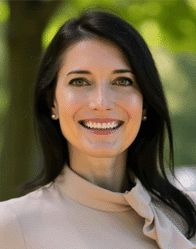
Andra Popa, JD, LLM, Assistant Director, Healthcare Compliance – CITI Program
Andra M. Popa is the Assistant Director, Healthcare Compliance at CITI Program. She focuses on collaborating with learning professionals to develop healthcare compliance content. Previously, Andra was the owner of a consulting firm that worked with over 40 healthcare entities to create, assess, audit, and monitor compliance programs, as well as to create educational programs. A graduate of Boston College with degrees in English and economics, she also has JD and LLM (healthcare law) degrees from Loyola University Chicago School of Law. She has published over 100 articles, written book chapters, and conducted workshops in design and compliance.
